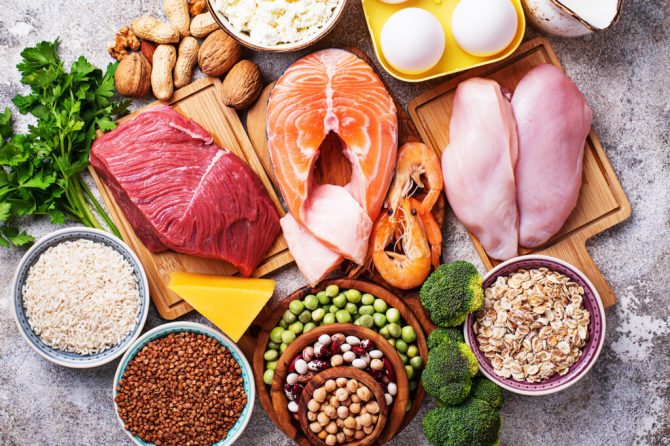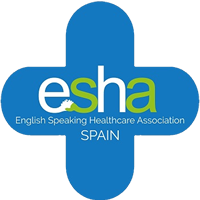
The Powerful Benefits of a High-Protein Diet
The debate around the merits of different diets is a never-ending one. Still, one thing that most nutritionists and health experts can agree on is the importance of protein. A high-protein diet has numerous health benefits, from weight management to muscle growth, increased satiety, and more. In this blog, we will explore the key advantages of a high-protein diet and why you might want to consider it.
What one should eat in a high protein diet?
- Eat little protein like lean meat, low fat dairy, eggs, beans, seafood, seeds, nuts.
- Eat low glycaemic food like strawberries, blueberries, and raspberries.
- Eat vegetables such as mushrooms, peppers, and leafy greens.
- Eat whole grain foods.
What one should not eat in a high protein diet?
- Don’t eat saturated fats like ghee, butter, and bacon etc.
- Don’t eat fried food.
- Don’t eat food containing extra sugar.
- Don’t eat refined carbohydrates like white rice, white bread, etc.
-
Weight Management
One of the most well-recognized benefits of a high-protein diet is its potential for weight loss and weight management. Studies have shown that protein can help you feel fuller for longer because it takes more time for the body to digest, thus reducing your overall calorie intake [1]. This can lead to a natural reduction in your food intake without the need for strict calorie counting.
-
Muscle Growth and Recovery
Protein is an essential nutrient for muscle repair and growth. This is particularly relevant for those who engage in physical activities, such as weightlifting or endurance training. A high-protein diet can help to repair muscle tissue damaged during exercise, promoting muscle growth and improving strength [2].
-
Bone Health
Contrary to popular belief that protein is harmful to bone health, recent research indicates that a high-protein diet might actually be beneficial for bones. Protein appears to support bone health by increasing calcium absorption and improving bone metabolism [3].
-
Enhanced Metabolism
Protein has a high thermic effect, meaning your body uses more energy to digest it compared to fats and carbohydrates. This increased energy expenditure boosts your metabolism and can increase the number of calories you burn throughout the day [4].
-
Improved Immune Function
Protein plays a vital role in supporting our immune system. Proteins are used to build and repair body tissues and form antibodies that fight off infections and illnesses. Therefore, a high-protein diet can help strengthen your immune system and keep you healthier [5].
-
Better Mood and Brain Function
Certain amino acids found in protein-rich foods are essential for the production of neurotransmitters, which are crucial for cognitive function and mood regulation. A diet high in protein can help maintain a healthy balance of these neurotransmitters, potentially leading to improved brain function and mood [6].
Example of a high protein diet
Here is an example of a high protein diet that could be followed for muscle building or weight loss:
Breakfast:
Omelet with spinach, mushrooms, cheese and turkey bacon
Greek yogurt with berries and almonds
Protein shake or smoothie with protein powder, banana, peanut butter
Lunch:
Grilled chicken salad with romaine lettuce, tomatoes, avocado and balsamic vinaigrette
Tuna salad wrap with lettuce in whole wheat tortilla
Leftover grilled salmon with quinoa and roasted vegetables
Dinner:
Grilled steak with baked potato and side salad
Chicken fajitas with sautéed peppers and onions
Shrimp stir fry with broccoli and brown rice
Snacks:
Cottage cheese with apple slices
Edamame hummus with carrot sticks
Hard boiled eggs
Greek yogurt with chia seeds
Turkey jerky stick
Protein bar or protein shake
Focus on lean proteins like chicken, fish, eggs, Greek yogurt and lean red meat. Incorporate lots of vegetables, some complex carbs like potatoes or quinoa and healthy fats from foods like avocado, nuts and olive oil. Avoid processed and sugary foods. Drink plenty of water and supplement with protein shakes as needed.
FAQs on the Benefits and Disadvantages of High Protein Diet
Q: Can a diet high in protein be harmful?
Healthy people who eat a high-protein diet for a short time won’t get sick. But too much protein that hasn’t been ordered by a doctor can be bad for the body. Also, a balanced diet is always a good thing.
Q: Does eating a lot of protein have any disadvantages?
Eating a high-protein diet for a long time can cause calcium homeostasis and bone problems, problems with how the kidneys and liver work, an increased risk of cancer, problems with how the liver works, and a worsening of coronary artery disease.
Q: What happens when you start eating more proteins?
If you eat more proteins, your body will store them as fats. This will cause you to gain weight over time. But it can also cause bad breath, trouble going to the bathroom, becoming dehydrated, and making you throw up.
Q: Which organ is affected by too much protein?
If you eat too much protein, it can hurt your liver. When the liver is overworked, it releases ammonia and other poisons into the bloodstream. Also, overeating protein can worsen kidney disease symptoms or cause kidney damage in otherwise healthy people.
Q: What kind of kidney problem can too much protein cause?
When too much protein is in your urine, the glomeruli stop working right, and too much protein gets into the urinary system. Nephritis is when the glomeruli are damaged.
Q: What does “protein poisoning” mean?
Protein poisoning happens when the body overeats protein without getting enough fats and carbs for a long time. It can hurt the way the kidneys filter waste and keep the balance of electrolytes. In general, you should eat a healthy amount of protein.
Q: What are the pros and cons of eating a lot of protein?
Some of the pros of this kind of diet are less hunger, more muscle and strength, and a faster metabolism. Some of the cons are weight gain and an imbalance in nutrition. Make sure you don’t eat too much of foods that are high in protein.
Q: Can eating too much protein make you tired?
Yes, too much protein can make you tired because it puts stress on your liver, kidneys, and bones. Also, your body makes serotonin from an amino acid called tryptophan, which makes you feel tired and sleepy.
Conclusion
A high-protein diet can offer a multitude of benefits, spanning from physical health to mental well-being. However, it’s important to remember that while protein is a vital nutrient, balance and variety are crucial for overall health. It’s not just about increasing protein intake but also about obtaining it from a variety of sources, including lean meats, fish, dairy, legumes, and plant-based proteins.
It’s also essential to consult with a healthcare provider or nutritionist before making any significant changes to your diet, especially if you have pre-existing health conditions or specific dietary needs. With the right balance and professional advice, a high-protein diet could be a valuable tool in your journey towards improved health.
You can find a list of English Speaking Nutritionists in the ESHA Spain business directory
Leave a reply





Leave a reply